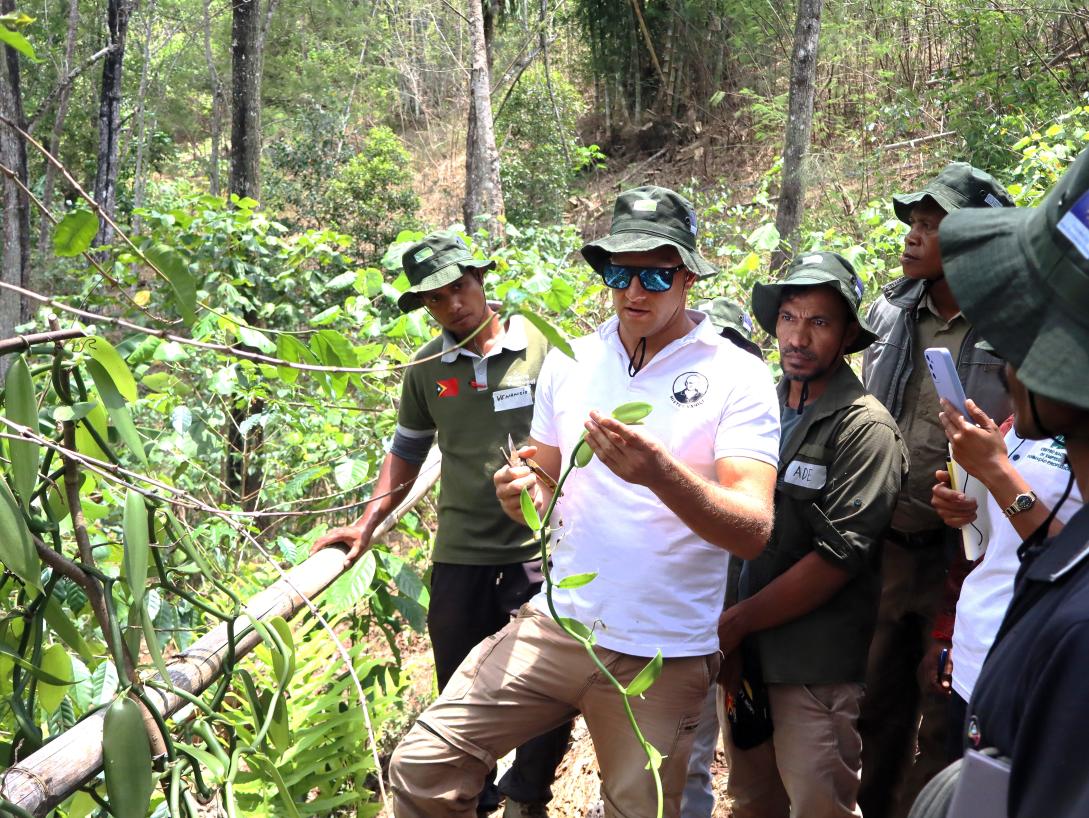The EU Agroforestry Skills Project: Empowering Timor-Leste’s Vanilla Farmers through Intensive Training of Trainers on Vanilla Cultivation

Though vanilla is less popular among farmers across Timor-Leste, it shows potential in areas like Aileu, Liquica, Dili, and Ermera, where farmers have begun cultivating it. Vanilla is polinated by hand, producing one bean per flower. it is a labor-intensive process that involves careful cultivation to ensure quality. Each stage demands significant manual effort, time, and attention, making it both challenging and resource-demanding for farmers.
The ToT training was led by Daniel Stassen, an expert from Belgium famously known as “Mister Vanili.” With his enormous experience in growing vanilla plant, Stassen provided trainees with essential knowledge and practical skills necessary for successful vanilla cultivation. "Our goal with this training is to increase their knowledge and skill of vanilla farming in Timor-Leste, equipping trainers who can spread these practices among local farmers," explained Stassen. "We focused on theoretical and practical aspects of vanilla farming, from soil and climate considerations to agricultural techniques adapted specifically to Timor-Leste."
During the three-day training, participants covered a broad range of topics. The sessions began with an introduction to vanilla cultivation, followed by practical techniques in land preparation, planting, routine maintenance, looping, root system development, flower induction, and pollination. They also discussed critical plant health practices, including pest and disease management, to help farmers safeguard their crops.
Sabina also highlighted the practical farm visits included in the training. These trips enabled participants to observe community farms and witness how organic fertilizer application can protect plants from pests. She left the training with a renewed commitment to share her skills with young people at the Tibar Training Center. "This training has strengthened my abilities, and now we plan to incorporate these techniques into our programs for youth, who can bring these practices back to their communities," Sabina explained.
Another participant, Mário Xavier, an experienced vanilla farmer, shared his appreciation for the training, noting how it deepened his understanding of cultivating vanilla across different seasons. "The training taught me how to adapt practical techniques for growing vanilla during the rainy and dry seasons,” Mário explained. A local vanilla farmer, spoke with a fresh sense of confidence about the changes he has experienced. "Now I feel empowered to use my own creativity and knowledge to grow vanilla independently, which will benefit both my family and community." Mário remarked with confidence.
The ToT initiative in Aileu not only empowers participants with crucial skills but also sets a strong foundation for sustainable vanilla farming in Timor-Leste. By enabling local trainers to share these practices widely, the program ensures that the knowledge and benefits of vanilla farming will continue to spread, strengthening rural livelihoods and resilience across the country.





